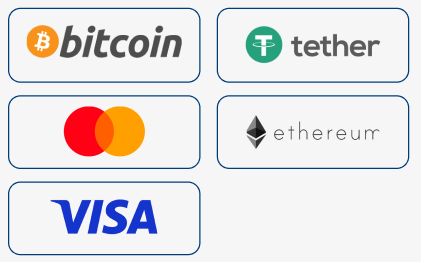Embarking on the journey of trading can be both exhilarating and daunting. The world of trading offers endless opportunities to those who are willing to delve into it, but the path to becoming a seasoned trader often requires education, practice, and a wealth of resources. One of the best ways to gain knowledge is through books written by experts in the field. Whether you’re a novice or an experienced trader, the right trading books can provide valuable insights and strategies to enhance your trading skills.
In this article, we will explore some of the top trading books and educational resources that can guide you through the complexities of the market. Covering everything from fundamental analysis to trading psychology, these resources are essential for anyone looking to succeed in trading.
The Foundation of Trading Knowledge
Before diving into the specifics of trading strategies, it’s crucial to build a solid foundation. Understanding the basics of the stock market, how trading works, and the financial instruments available for trading is the first step.

A Solid Start: Fundamental Analysis Books
Trading isn’t just about buying low and selling high; it’s about understanding the intrinsic value of assets. Books on fundamental analysis help traders assess the real value of securities, based on factors like financial statements, company health, market conditions, and economic indicators.
One must-read in this category is “The Intelligent Investor” by Benjamin Graham, which offers timeless wisdom on value investing. Graham’s principles help traders discern the true value of stocks and make informed decisions, minimizing risks and maximizing long-term gains.
The Big Picture: Economic and Market Insights
To trade effectively, one must also understand the broader economic context. Books that provide insights into market dynamics, economic cycles, and how they affect trading can be invaluable. “A Random Walk Down Wall Street” by Burton Malkiel explores the idea that asset prices typically exhibit signs of a random walk and that therefore, it is impossible to consistently outperform market averages.
Specialized Trading Strategies
Once the fundamentals are in place, traders often specialize in a particular strategy or market. There are books for every niche, be it swing trading, day trading, options, or forex.
Swing Trading Books for the Short-Term Trader
Swing traders operate on a short to medium-term basis, holding positions for several days or weeks to capture market gains. A classic book in this domain is “Come Into My Trading Room” by Dr. Alexander Elder. Elder’s book is a comprehensive guide to swing trading, covering the essential aspects of the trading lifecycle and the discipline required for success.
Day Trading Books for the Market Maverick
For those who prefer the fast-paced environment of day trading, where positions are opened and closed within the same trading day, books like “Day Trading and Swing Trading the Currency Market” by Kathy Lien offer in-depth knowledge of currency markets and practical strategies for day traders.
Trading Psychology Books for Mental Mastery
A trader’s mindset can often be the difference between success and failure. Books that focus on trading psychology, such as “Trading in the Zone” by Mark Douglas, help traders understand the psychological barriers that can affect their decision-making and teach them how to overcome these challenges for improved performance.
Advanced Techniques and Technologies
With a solid foundation and an understanding of different trading strategies, traders can explore more advanced techniques and the latest technological developments.
Technical Analysis and Charting
Technical analysis involves analyzing statistical trends gathered from trading activity, such as price movement and volume. Books like “Technical Analysis of the Financial Markets” by John J. Murphy provide a comprehensive overview of technical analysis concepts and how they can be applied in various markets.
Algorithmic and Quantitative Trading
The rise of algorithmic trading has opened a new realm of possibilities. For those interested in this field, “Algorithmic Trading: Winning Strategies and Their Rationale” by Ernie Chan offers an introduction to the quantitative algorithms used in trading and how to develop them.
Continuous Learning: Online Courses and Webinars
Books are a fantastic resource, but traders should also consider the benefits of interactive learning. Online courses and webinars provide the opportunity to learn directly from trading professionals and ask questions in real-time.
Websites like Udemy, Coursera, and edX offer a variety of trading courses for different levels and strategies. Additionally, many brokerage platforms host webinars and workshops for their clients, covering a wide array of topics from basic trading principles to advanced techniques.
Networking and Community
Joining trading forums and communities can offer support, advice, and insight from fellow traders. Platforms like TradingView and the subreddit r/Trading are popular places for traders to share their experiences and strategies.
Takeaways
The road to becoming a proficient trader is paved with continuous education and practice. Trading books, coupled with educational resources like online courses and community forums, provide the knowledge and support necessary for traders to navigate the markets confidently.
Whether you’re just starting out or looking to refine your trading techniques, investing in your education is a trade that’s always worth making. The resources mentioned in this article are just the beginning. As the trading landscape evolves, so should your learning journey, keeping you at the forefront of the trading world.






